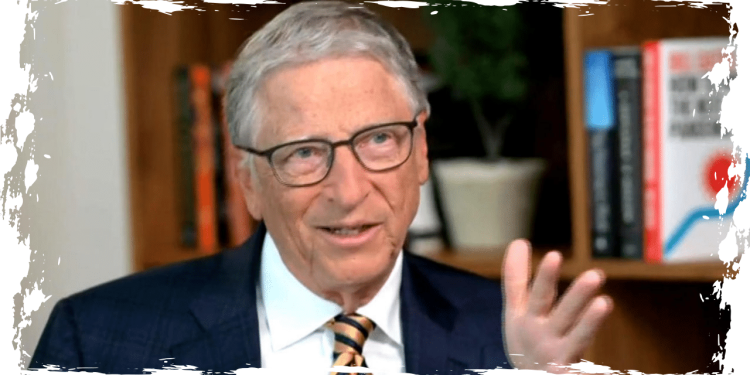Bill Gates expressed his confidence on Sunday that the next generation nuclear power project will carry on, regardless of the political situation in Washington next year. He stated that the support for nuclear power is impressive in both parties, making him quite confident about the project’s future.
Last week, Gates and his energy company, TerraPower, began work on a groundbreaking project in Kemmerer, Wyoming. The project involves a nuclear power plant that uses sodium cooling instead of water. This innovative approach simplifies the process and makes it safer. Additionally, it has the potential to provide low-cost electricity, making nuclear energy a more accessible source of power. Earlier this year, the company applied for a construction permit from the Nuclear Regulatory Commission to build an advanced nuclear reactor that utilizes sodium.
By 2030, the project is set to begin generating electricity, marking the first time in years that a commercial company has attempted to establish reactors as part of the United States’ power supply. Nuclear power is an emission-free alternative that does not emit greenhouse gases, which contributes to climate change. The new plant is located next to the Naughton Power Plant, which is expected to cease using coal in 2026 and natural gas ten years later, as reported by The Associated Press.
According to Gates, nuclear energy offers more than just a solution to climate change, which is why it has garnered support from both sides of the political spectrum. Democrats recognize the value of this clean energy source, while Republicans are interested in the energy security it provides.
During an appearance on “Face the Nation” on Sunday, Gates expressed that among all the climate-related efforts he is involved in, the nuclear work has the most support from both sides of the political spectrum.
According to Gates, for some individuals, the significance may be in the United States’ leadership and competitiveness regarding the matter.
According to Gates, having nuclear reactors built by adversarial countries is not desirable from an economic standpoint. These reactors have the potential to be a significant source of employment, and therefore, it is essential to keep our eyes on the materials involved to ensure they are not being diverted for military-related activities. The strategic benefits of U.S. leadership in this field are significant and must be taken into account.
According to Gates, China is currently leading in the construction of nuclear reactors. However, he believes that the United States has the potential to be a strong competitor in this field if it utilizes its innovation capabilities.
He expressed his confidence in the country’s innovation potential by saying, “We have the ability to lead if we unleash our innovation power.” He also acknowledged the support of the federal government in the nuclear industry, emphasizing the need to address the issue of current reactors being too costly. He urged for a willingness to out-innovate foreign competitors and maintain the lead by making necessary changes.
Initially, the project was confronted with the challenge of sourcing uranium fuel from Russia. Gates acknowledged that the fuel supply issue caused a delay in the project’s timeline from 2028 to 2030, due to the changing geopolitical landscape following Russia’s war against Ukraine. However, according to Gates, suppliers in the United Kingdom and South Africa, as well as the eventual availability of uranium mines in the U.S. and Canada, will enable the project to proceed as planned.
Gates stated that meeting our fuel requirements is possible by going to the free world. He added that the alternate plan, which involves the federal government’s assistance in figuring things out, is now fully established.









